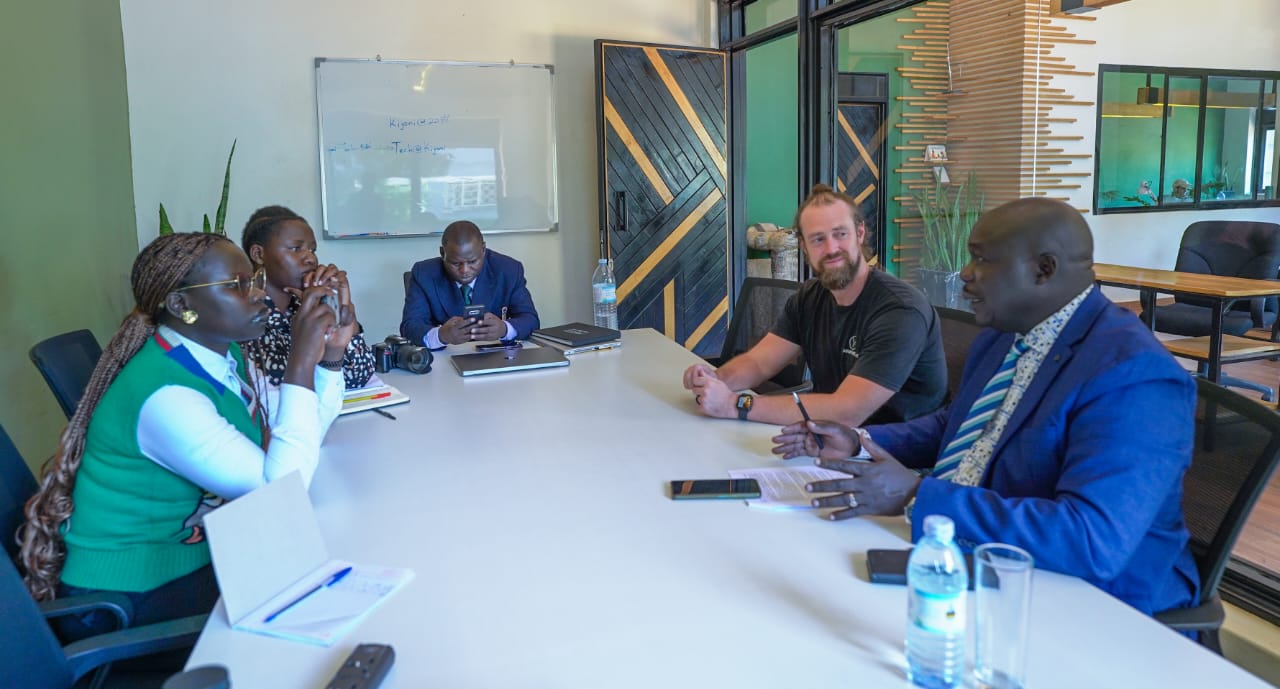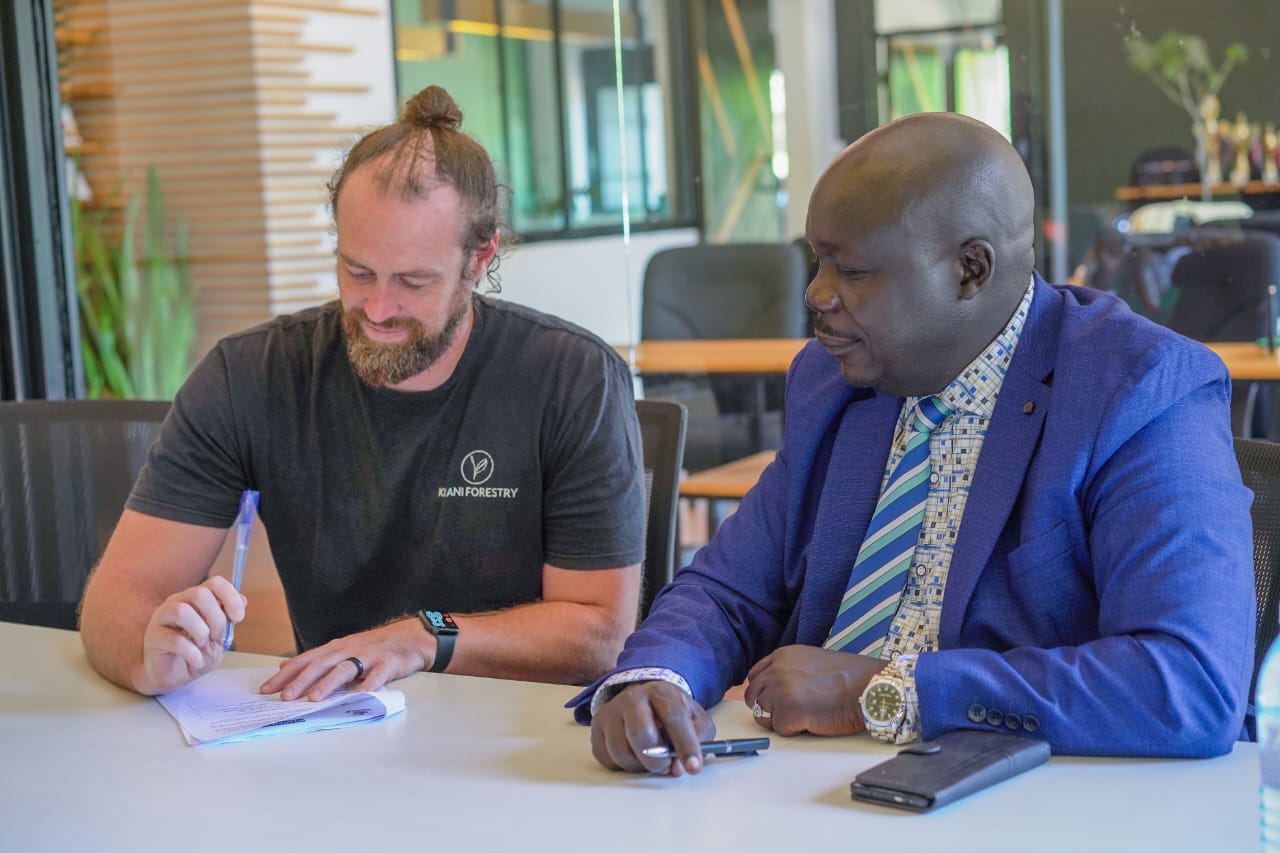Muni University, forestry company partner to promote agroforestry, reforestation in northern Uganda
The MoU, signed at the Kijani Forestry office in Gulu city's Laroo-Pece division on November 19, 2025, outlines joint efforts aimed at reducing pressure on natural forests, supporting tree planting for sustainable charcoal production
Kijani Forestry CEO Quinn Neely, Muni University spokesperson Vincent Musoke and vice-chancellor Prof. Simon Katrini Anguma after signing the memorandum of understanding (MoU). (Photo by Rosemary Anena)
___________________
Arua city-based Muni University has signed a memorandum of understanding (MoU) with Kijani Forestry to promote agroforestry and reforestation initiatives in northern Uganda.
The MoU, signed at the Kijani Forestry office in Gulu city's Laroo-Pece division on November 19, 2025, outlines joint efforts aimed at reducing pressure on natural forests, supporting tree planting for sustainable charcoal production, training farmers in improved land-use practices, developing carbon-related projects and increasing rural household incomes.
Speaking during the signing ceremony, Kijani Forestry chief executive officer Quinn Neely said the partnership aligns with the organisation’s objectives related to climate change and environmental restoration.
“This partnership will help us grow and support people within the community on reforestation, strengthening the charcoal supply chain, and providing economic opportunities as well as educating them,” Neely stated.
Established in 2019, Kijani Forestry trains farmers in agroforestry techniques and supplies fuelwood and fruit tree seedlings. It currently operates in 22 districts across northern Uganda and works with an estimated 45,000 households.
Neely said collaborating with Muni University supports Kijani’s plans to expand operations into the West Nile region.
“The expertise and support from Muni will strengthen our work in reforestation, sustainable charcoal production and generating economic opportunities, especially for rural farmers,” he said.

Kijani Forestry and Muni University officials at the event in Gulu city. Courtesy photo
Addressing key environmental challenges
Muni University vice-chancellor Prof. Simon Katrini Anguma said the partnership addresses key environmental challenges, particularly deforestation in Madi-Okollo district, where charcoal production is widespread and often unsustainable.
“Uganda’s forests, temperatures, and rainfall patterns have changed significantly due to human activity. Working with Kijani Forestry allows us to respond to these challenges,” Anguma said.
Under the MoU, Kijani Forestry will implement large-scale reforestation activities, promote sustainable charcoal farming, provide training for staff and farmers, and facilitate community mobilisation.
On the other hand, Muni University will offer technical training, develop modular curricula, participate in joint research and innovation, and extend community outreach in line with its public mandate.
As part of the collaboration, the two partners will design modular training programs enabling farmers to earn certificates that may eventually accumulate into diploma or degree qualifications.
“We will not engage farmers as they are; we must train them,” Anguma said. “This partnership gives communities access to structured training as they adopt new practices.”
He added that the university will also explore research opportunities related to Kijani’s charcoal production methods, including the extraction and potential use of tree sap, an area of interest for postgraduate studies in chemistry and environmental science.
The partnership aims to contribute to long-term environmental restoration and community resilience through combined academic research, field-based interventions, and the establishment of seed banks to conserve and restore indigenous tree species that are becoming locally extinct.
Senior International Relations Officer of Muni University Vincent Musoke highlighted the academic impact of the MoU, particularly for students.
“This partnership creates valuable platforms for practical training, internships, and field-based research. It positions Muni University as a leading centre for climate-smart agricultural education,” Musoke said.

Kijani Forestry CEO Quinn Neely signing the MOU document as Muni University vice-chancellor Prof. Simon Katrini Anguma looks on.Courtesy photo